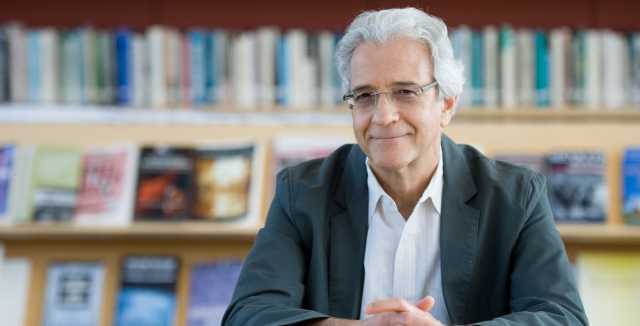Omer Bartov to Give Shapiro Scholar Annual Lecture May 8 at USC


Renowned Holocaust scholar Omer Bartov will give his public lecture as USC Shoah Foundation Center for Advanced Genocide Research’s 2016-2017 Sara and Asa Shapiro Scholar in Residence on Monday, May 8 at the USC University Club.
The lecture will discuss how the East Galician town of Buczacz was transformed from a site of coexistence, where Poles, Ukrainians, and Jews had lived side-by-side for centuries, into a site of genocide. Between 1941, when the Germans conquered the region, and 1944, when the Soviets liberated it, the entire Jewish population of Buczacz was murdered by the Nazis, with ample help from local Ukrainians, who then also ethnically cleansed the region of the Polish population. What were the reasons for this instance of communal violence, what were its dynamics, and why has it been erased from the local memory?
Born in Israel and educated at Tel Aviv University and St. Antony’s College, Oxford, Omer Bartov is the John P. Birkelund Distinguished Professor of European History at Brown University. His early research concerned the Nazi indoctrination of the Wehrmacht and the crimes it committed in World War II, analyzed in his books, The Eastern Front, 1941-1945 (1985) and Hitler’s Army (1991) He then turned to the links between total war and genocide, discussed in his books Murder in Our Midst (1996), Mirrors of Destruction (2000), and Germany’s War and the Holocaust (2003). Bartov’s interest in representation also led to his study, The “Jew” in Cinema (2005), which examines the recycling of antisemitic stereotypes in film. His last monograph, Erased: Vanishing Traces of Jewish Galicia in Present-Day Ukraine (2007) investigates interethnic relations in the borderlands of Eastern Europe and contemporary politics of memory in that region.
Bartov is also the editor of several volumes, including (with Eric Weitz) Shatterzone of Empires (2013). He has just completed a major monograph, Anatomy of a Genocide: The Life and Death of a Town Called Buczacz, to be published in December 2017 with Simon and Schuster. Bartov is currently directing the project “Israel-Palestine: Lands and Peoples,” at the Watson Institute, and has begun researching a new book tentatively titled “Israel: A Personal Political History.”
Intended to inspire prominent scholars, the Sara and Asa Shapiro Annual Holocaust Testimony Scholar and Lecture Fund enables one senior scholar to spend up to one month in residence at USC Shoah Foundation’s Center for Advanced Genocide Research. This prestigious fellowship is only available through an invitation by staff at the Center, in consultation with its Faculty Advisory Council.
The fellowship, which replaces the USC Shoah Foundation Yom Hashoah Scholar in Residency, offers fellows the opportunity to use the Holocaust and genocide resources at USC, including the USC Shoah Foundation’s Visual History Archive, which contains more than 53,000 testimonies of witnesses and survivors of the Holocaust, including the testimony of Sara Shapiro.
Bartov is the second Shapiro Scholar. David Cesarani passed away just weeks after being named the inaugural Shapiro Scholar in 2016, so USC Shoah Foundation hosted a symposium honoring his life and work in lieu of the lecture.
Bartov’s lecture begins at 11:30 a.m. at the Scriptorium room of the USC University Club, on the USC campus. Lunch will be served after the lecture. Please RSVP to cagr@usc.edu.